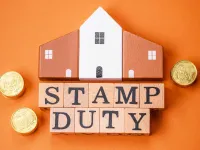Lease extensions
Please note that we only deal with lease extensions where terms have been agreed (sometimes referred to as voluntary or informal lease extensions).
We do not deal with the negotiation of premiums, the service of Section 42 Notices or the statutory procedure. Certain lenders will only accept statutory lease extensions.
Why do I need a lease extension?
Flats or maisonettes are normally held on long leases. Historically, many leases were granted for a period of 99 years or 125 years. Now, it is more usual for the lease period to be longer. If your lease has less than 85 years left to run, you should consider extending it.
Lease extension costs
Whilst extending a lease costs money, as you will need to pay an amount for the extension along with the landlord’s costs and your own costs. The costs of not extending a lease that has reduced to below 85 years is often significantly more due to:
- Some lenders will not lend where the lease has less than 85 years left to run.
- The shorter the lease, the more difficult it is to mortgage or sell. As the term of the lease reduces, it becomes less valuable
Extending the lease on a flat or other leasehold domestic property
There are three different ways of extending the lease:
- Statutory lease extension
There is a statutory procedure for extending the lease period by 90 years. This involves serving a notice, obtain valuations and agreeing a premium (price). The tenant will have to pay the landlord’s legal costs and valuation fees. The lease provisions remain the same, except that the ground rent is reduced to a peppercorn, which means in practice that there is no ground rent to pay for the rest of the lease period. - Non-statutory lease extension
Some landlords will agree to extend the lease without being served with a statutory notice. They might still instruct valuers and they might agree to extend the lease period for more than 90 years. Some landlords might try to use this to their advantage by suggesting high rents and unrealistic rent review provisions. This should be resisted. Many lenders will not lend if the rent doubles periodically, increases too frequently, or rises above £250 per year if the property is outside London. - Voluntary lease extension
Where leases of other flats in the same development or other properties on the same estate have already been extended, the landlord might agree to extend the lease period for more than 90 years on similar terms to the lease extensions already granted, including the premium, at a fixed starting rent, increasing by a fixed amount every 25 years, and capped at £250 per year. The tenants will almost certainly have to pay the landlord’s legal costs. If the landlord agrees to go down this route, there should be no valuation fees.
If the freehold is owned by a management company in which all the tenants have shares, it should be possible to negotiate a voluntary lease term of 999 years with no ground rent, but with the other lease provisions remaining the same.
Lease extension advice from Solicitors
If the statutory procedure is adopted, it will normally be necessary to instruct solicitors to serve the notice. The solicitors may become involved in the negotiations and the procedure can be drawn out.
If the non-statutory procedure is adopted, the procedure can be drawn out if the landlord proposes unreasonable terms.
If the voluntary procedure is adopted, solicitors can be instructed when terms have been agreed. The wording of the documentation can be agreed quickly, sometimes within a few days if the landlord’s solicitors deal with matters promptly.
If the property is in mortgage, the lender will need to agree to the lease extension and a Deed of Substitution will need to be signed. This ensures that the lender has security over the extended lease.
The lease extension needs to be registered at the Land Registry. The Land Registry closes the existing leasehold title and opens a new leasehold title. It can take the Land Registry up to 6 months to complete the registration.
If you are thinking of extending your lease and would like to discuss the matter, please telephone Jeremy Conway on 0113 218 5427.







